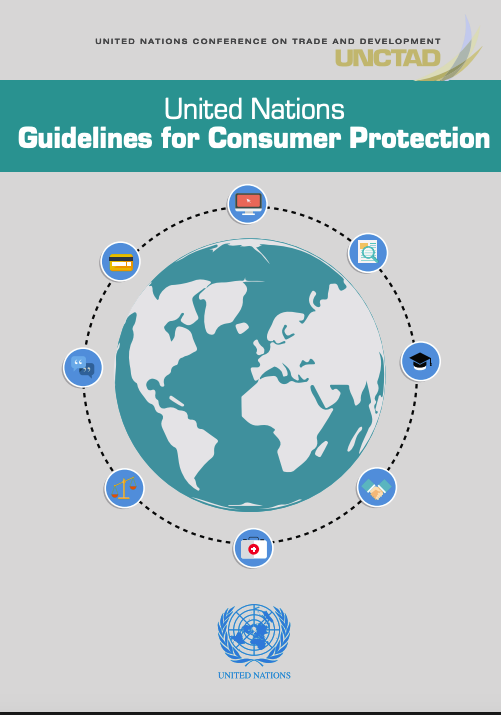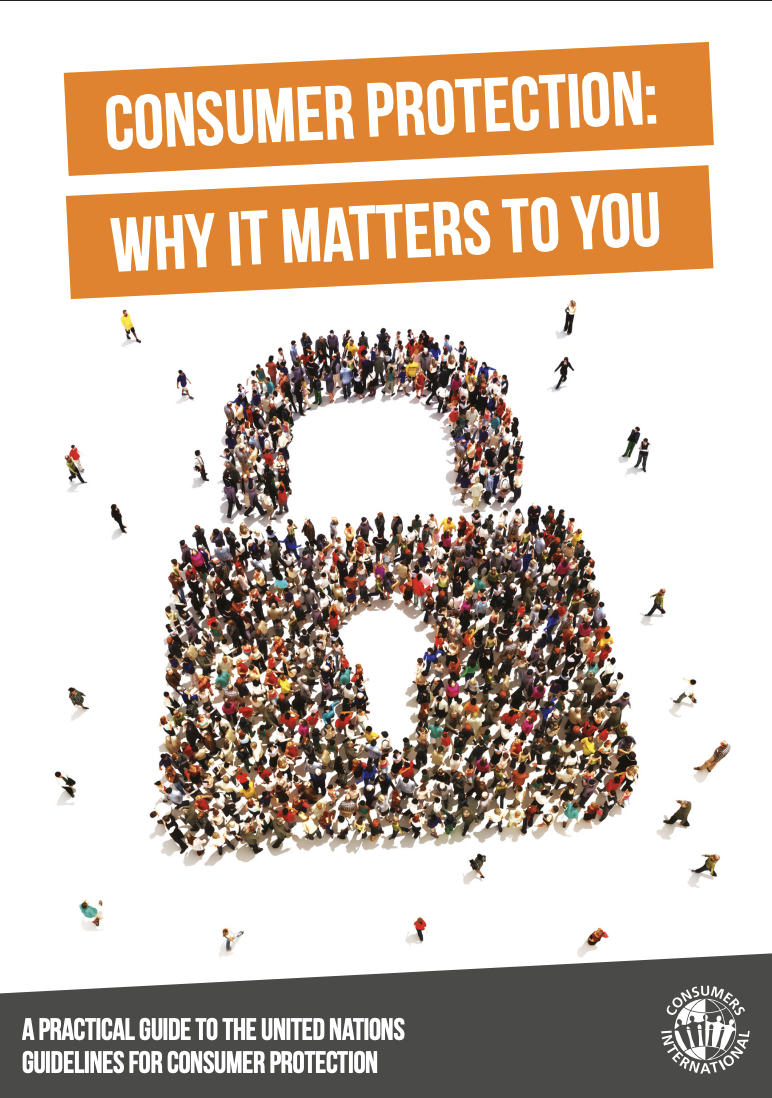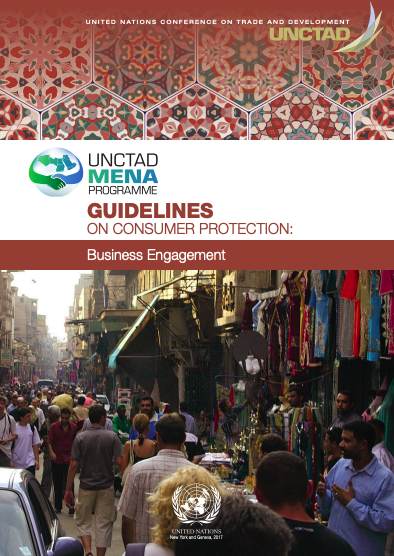Consumer Rights and Safe Products and Services
Description
Including health and safety of products; responsible advertising; warranties; return and exchange; right to repair; and inclusive design of products and services.
Share this Subissue on:LinkedIn
Resources
Responsible Advertising and Greenwashing
Net Zero Transition Plans: Red Flag Indicators to Assess Inconsistencies and Greenwashing
This report from WWF and others can help you assess the integrity and consistency of net-zero transition plans. It begins by defining greenwashing and how it relates to transition plan credibility, which is a prerequisite for effective capital allocation and climate risk management. It then proposes a framework for assessing transition plan credibility based on a study of 28 transition frameworks. The outcome of this study is a red flag indicator framework that can be used to assess the ambition, credibility, and feasibility of transition plans and prevent greenwashing.
Although the proposed framework was designed for investors, it will also be useful to strategy, sustainability, and finance teams working to develop or improve climate transition plans for their organisation.
Environmental claims and the Competition Act
Canada’s Competition Bureau has released guidelines to help you ensure compliance with the Competition Act when making claims about the environmental benefits or attributes of products or businesses. The guide identifies provisions that are most relevant to environmental claims, and provides principles to help businesses assess whether their environmental claims are in line with the requirements of the Act.
On the rise: navigating the wave of greenwashing and social washing
Misleading communication around environmental and social topics is on the rise, harming progress on sustainability globally and eroding both investor and consumer trust. This article from RepRisk can help you understand recent trends related to greenwashing and social washing. It explains the regulatory response to misleading sustainability-related communications, trends in greenwashing risk exposure, and recent (and growing) attention to social washing risk. The guide will be most useful to sustainability professionals responsible for disclosure, as well as communications, marketing, and enterprise risk teams.
“Net Zero Greenwash”: The Gap Between Corporate Commitments and their Policy Engagement
This study by InfluenceMap can help you understand the risk of greenwashing your climate commitments through misaligned policy engagement. The key findings highlight the prevalence of greenwashing through both companies’ own engagement and that of their industry associations. They show that more than half of companies with climate commitments have been unsupportive of climate policy in at least some cases, and that many companies are actively undermining their commitments by lobbying against climate action. A set of brief examples from ten companies further demonstrates this discrepancy. These insights will be most useful to sustainability, policy advocacy, and communications professionals.
The Greenwashing Hydra
This report from Planet Tracker can help you understand and identify the nuances of greenwashing. It explains the problem of greenwashing, identifies six different types of greenwashing, and provides an overview of the global regulatory crackdown on greenwashing. The report may be of particular value to sales, marketing, and procurement professionals.
Greenwashing Assessment Framework
This tool from the Climate Social Science Network features indicator questions, notes, and examples that can help you to determine if your organisation (or another) is engaging in greenwashing. The tool supports enhanced scrutiny of statements claiming positive social and environmental impact; claims related to organisational practices and their alignment with stated intentions or values; and communications that are poorly defined or excessively broad and could be misunderstood. This resource is a good preliminary screening tool, and will benefit sustainability, legal, and communications professionals, as well as senior leaders.
Other Resources
A Guide to Product Safety Standards
This short article can help you to quickly build a better understanding of product safety standards from around the world. It explains the key benefits of adhering to these standards, as well as notable product safety standards and regulations from the United States, Australia, United Kingdom, European Union, and more.
The ICC Advertising and Marketing Communications Code
The International Chamber of Commerce's (ICC) Advertising and Marketing Communications Code is the international go-to guide for responsible marketing and advertising, and it can help you to build consumer trust with marketing that is legal, decent, honest and truthful, and relevant against global and industry developments. Used as a benchmark for almost fifty self-regulatory codes in countries around the world, it provides a comprehensive range of general provisions on advertising and marketing communications, as well as detailed chapters on sales promotion, sponsorship, environmental claims, and more.
ICC Framework for Responsible Environmental Marketing Communications - 2025 Edition
This framework from the International Chamber of Commerce (ICC) can help you to ensure that environmental claims in your marketing and advertising are truthful and appropriately supported by evidence, that they meet legal and regulatory requirements, and that they reflect the core principles of the ICC Code. Like the ICC Code itself, the framework covers all forms of advertising and marketing communications claims, including digital advertising and social media. It applies to the entire marketing ecosystem, guiding communications practitioners, advertising agencies, publishers, media owners, contractors, market influencers, bloggers, vloggers, ad tech companies, those responsible for preparing algorithms and artificial intelligence technologies for marketing communications purposes, and more.
The framework provides a summary of the principles of the ICC Code, as well as commentary and guidance to help practitioners apply the principles to environmental advertising. It also provides a checklist that marketers may find useful for initially identifying and evaluating their environmental claimms; a comparative chart that identifies relevant general provisions and provides commentary, observations, and suggestions; and a table that describes specific environmental claims or terms and identifies the ICC principles and other considerations that apply when such terms are used.
Designing safe and sustainable products requires a new approach for chemicals
This briefing from the European Environment Agency can help you to ensure that chemical products are produced in a way that maximises their contributions to society while avoiding harm to nature and peoples. To achieve this, it provides a four-step process for factoring sustainability dimensions into the design phase of chemical products.
OECD Recommendation of the Council on Consumer Product Safety
These recommendation on consumer product safety - adopted by the OECD Council in 2020 - outline the key elements that should be at the core of consumer product safety frameworks at domestic and international levels. They promote a consistent approach to product safety rules across jurisdictions in order to increase certainty and efficiency for all stakeholders. The recommendation calls for the establishment of robust consumer product safety regulatory and policy frameworks that provide for a consumer right to safe products and rapid alerts when unsafe products are on the market or are the subject of a ban or a recall; are informed by sound evidence and data sources; and pay specific attention to vulnerable consumers.
How to Write a Retail Return and Exchange Policy (+ Free Template)
This short article from ReverseLogix can help you to draft a return and exchange policy. It explains the importance of a carefully crafted policy to the success of the return process; highlights seven key elements to consider; and provides a simple template to help you get started.
Advertising Standards
The Responsible Advertising and Children (RAC) programme was established to bring together brand owners, agencies, and the media at a global level to anticipate and understand societal and parental aspirations regarding responsible marketing communications and children. This short primer can help you to understand advertising self-regulation and the benefits it provides.
Our Right to Repair
This article from Leyla Acaroglu can help you to understand why repair is a right, why our current linear economy - including both the actors within it and the design principles that underpin it - is structured to oppose the right to repair, and how this contributes to inequity. It highlights some of the tactics that companies use to prevent (or disincentivise) repairs and upgrades, and makes a compelling case for why repair should be mainstream and accessible. It also examines key trends and developments related to the Right to Repair Movement.
Inclusive design: why it’s more than just a quick makeover
This short article from IMD can help you to understand the benefits of embracing the principles of inclusive design, and it provides a simple step-by-step approach (featuring approachable and practical frameworks) for better ensuring that your products and services meet the needs of all consumers.
What is inclusive design?
This short primer from the Inclusive Design Research Centre can help you to better understand and define inclusive design, as well as differentiate it from universal design.
The Inclusive Design Guide
This guide from the Inclusive Design Research Centre can help you to advance the practice of inclusive design, including within digital design, the design of services, the built environment, and physical products. The guide features a broad range of insights and provides a collection of practices, tools, and activities that describe specific ways in which inclusive design can be put into action. This resource can be applied to processes like workshops, meetings, and conferences, and is applicable to professionals in a broad range of roles.
Microsoft Inclusive Design
Microsoft has produced a broad range of inclusive design guidance materials to help you practice new skills, develop new concepts, and prototype inclusive solutions. These guidebooks include inclusive 101 guidance; inclusive design for cognition; inclusive design for mental health; and more. Microsoft has also developed case studies, screens, worksheets, activity cards, and other resources for advancing inclusive design.
United Nations Guidelines for Consumer Protection
These guidelines are a valuable set of principles for setting out the main characteristics of effective consumer protection legislation. They can help you to better understand the ways in which UN member states, businesses, and civil society can promote consumer protection in the provision of public and private goods and services.
Guide on Quality-Related Claims
This guide from Singapore's Competition & Consumer Commission can help you to make clear and accurate product claims. It includes five key principles and a checklist that businesses should refer to when making claims related to the qualities, uses, or benefits associated with their products and business.
Consumer Protection: Why it matters to you
This simple and accessible resource from Consumers International can help you to better understand and advance key principles of consumer protection. The guidelines explain eleven "legitimate needs" of consumers (such as access, inclusivity, safety, redress, and sustainability) and provide practical advice to organisations about how best to meet those needs.
Guidelines on Consumer Protection: Business Engagement
Set in the context of the United Nations Guidelines for Consumer Protection, this resource attempts to grow the sphere of concerned stakeholders to include business, not solely as a subject or recipient of consumer protection law and policy but equally with a responsibility to comply. It explains the responsibilities of companies to comply and highlights positive and negative incentives; explores business obligations and consumer rights in the Middle East and North Africa; explains compliance in relation to the MENA region and UN business principles; features guidance to business, including how to move beyond compliance; and more.




















